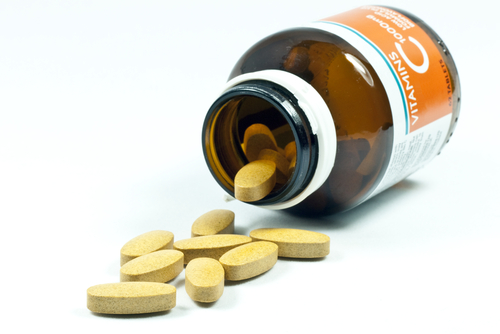Studio 5 Health and Fitness Contributor Melanie Douglass, R.D., NASM, shares her picks on the three supplements everyone should be taking.
What’s the best way to avoid catching a cold?
A) take vitamin C
B) take Airborne
C) take Echinacea
D) take garlic
If you answered any of the above – you are wrong! Why? Because the “best” way to avoid a cold isn’t about supplements at all. The point is that when it comes to good health, there are actions we should take first: exercise, sleep, healthy foods, hand washing. After we cover the basics, then we turn to dietary supplements… as a “supplement” to other healthy behaviors.
Also, remember this: Vitamin A is necessary for vision, but taking more vitamin A does not give you extra vision. When it comes to supplements there are upper limits. More is not always better. Moderation is the key. I recommend looking for a supplement with 100% or less of the Daily Value for each nutrient. We eat food every day, and foods are the best sources of efficient, absorbable nutrients. Some of these foods are practically vitamin supplements themselves (cereals, energy bars, meal-replacement drinks).
What’s’ Popular?
•The most popular products used by adults for health reasons in the past 30 days were:
fish oil/omega 3/DHA (37.4%)
glucosamine (19.9%)
echinacea (19.8%)
flaxseed oil or pills (15.9%)
ginseng (14.1%)
• In another survey, covering all types of dietary supplements:
52 % used some type of supplement in the last 30 days
multivitamins/multiminerals (35%)
vitamins E and C (12-13%)
calcium (10%)
B-complex vitamins (5%)
Regardless of what’s popular, based on the What We Eat In America national survey, NHANES data and the Institute of Medicines Daily Reference Intake Tables, here are a few supplements you should know about.
(Whether or not you take a daily multi-vitamin supplement, make sure you are getting enough of these essential nutrients! That doesn’t mean you need extra ;).
#1: Vitamin D
• Average American only gets 70% of Daily Value (which is currently thought to be too low by most experts) .
• Reduces bone loss, inflammation, gum disease and potentially the risk of cancer, diabetes, MS and arthritis
Increases size of fast-twitch muscle fibers, protein synthesis, strengthens bones
Promising studies for colon cancer and breast cancer
In one study 1000 IU Vit D+ 1500 mg Ca = 77% less likely to get breast cancer
• Aim for:
700 – 1000 IU per day
Current DV of 400 IU is outdated
• Best food sources:
Fortified milk: average 100 IU/serving
Tuna and fatty fish: 100 – 400 IU/serving
#2: Omega-3’s
• Improves endothelial function
• May lesson telomere shortening
• Decreases inflammation, blood clotting, triglycerides
• Curbs irregular heartbeats
• Aim for:
500 to 1000 mg per day of EPA + DHA
Specifically look for EPA/DHA content in mg! (Not “fish oil concentrate”.)
• Best food sources:
Seafood (EPA & DHA)
Flax, walnuts, canola oil (ALA plant-
derived)
#3: Vitamin E
• Average American only gets 45 – 50% of Daily Value
• Antioxidant, supports immune system, widens blood vessels, lowers risk of blood clotting
• Aim for:
33 IU from a supplement
Keep it under 100 IU
High-dose Vitamin E studies haven’t panned out – in fact some studies show damage with doses higher than 100 IU per day.
WE NEED VITAMIN E – BUT NOT TOO MUCH FROM A SUPPLEMENT BE CAREFUL.
• Best food sources:
Vegetable oils (corn, safflower, canola)
Nuts and seeds
For more info: Melanie@tonicfit.com
www.tonicfit.com















Add comment